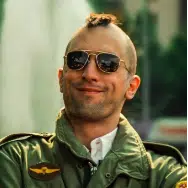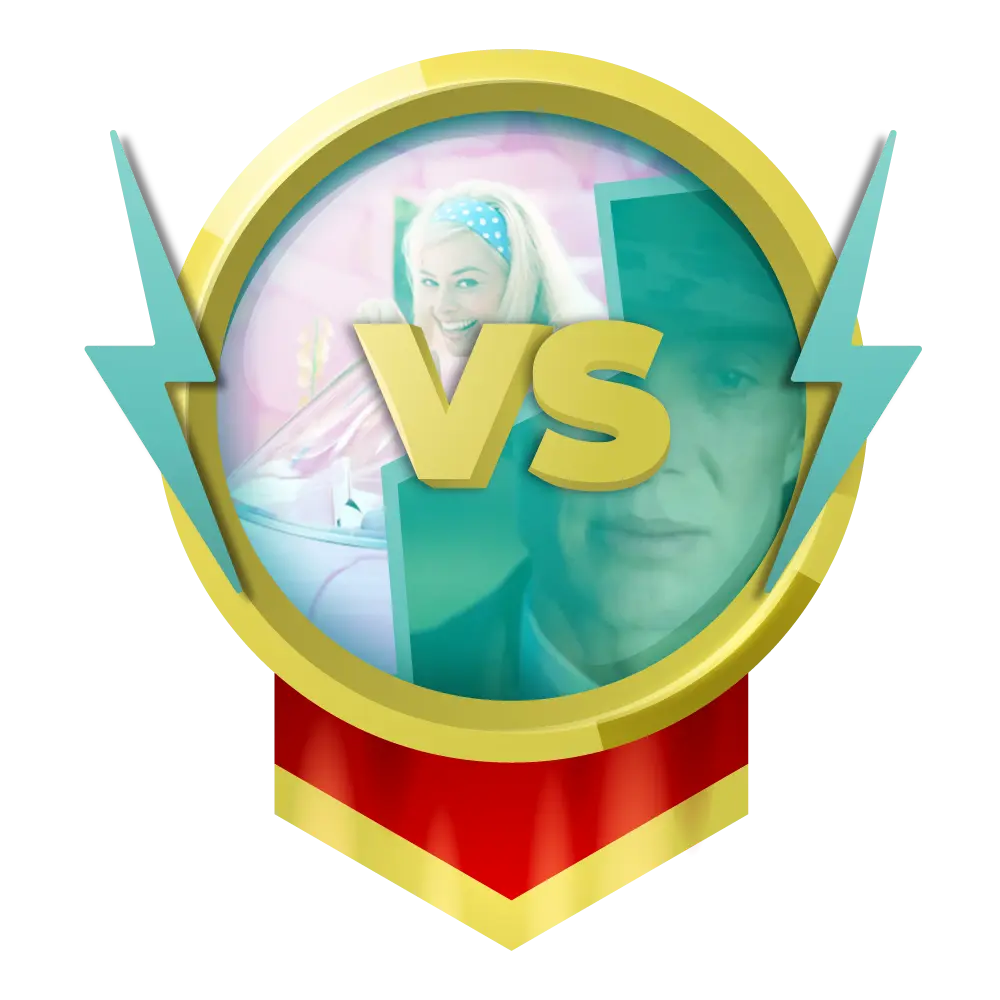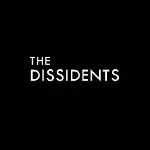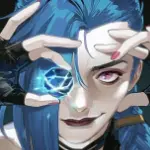On February 9, 2020—just days or months before the world came to a standstill (depending on where each of us were at the time)—Jane Fonda delivered the final verdict of an awards ceremony that had already had several surprises. An Asian filmmaker, who had won the Palme d’Or less than a year earlier, had just swept the Oscars, taking home Best Original Screenplay, Best International Feature, and Best Director for a film that fit the Academy’s standards perfectly while also offering a fascinating look at the current social landscape. Jane Fonda, at eighty-two years old, stood before the elite glamour of Hollywood, where many believed such an achievement was practically impossible. She looked ahead in astonishment and quoted the iconic line: “And the Oscar goes to…” Silence. “Parasite,” she declared. Even she could hardly believe it. No one knew how to react other than with a mix of shock and joy—except for director Sam Mendes (the mastermind behind 1917), who was the only one unable to hide his disappointment.

The return of the acclaimed Bong Joon-Ho took nearly six years to materialize after making history that night. That unforgettable, pre-pandemic edition of the Oscars where he won everything with Parasite, his flawless blend of social critique, comedy, and suspense. Today, the most likable and popcorn-friendly South Korean filmmaker, after giving Hollywood a much-needed lesson, can now look down from the top and do whatever he pleases. And that’s exactly how he assembled Robert Pattinson, Toni Collette, Mark Ruffalo, and The Walking Dead's Glen to bring to life Mickey 17, a wildly entertaining socio-political dystopia wrapped in a feel-good comedy—his most ambitious project to date. What’s remarkable, aside from his impeccable (and equally remarkable) filmography, is that despite knowing he’s at the peak of his career, Joon-Ho refuses to bow to a system that devours anyone who gets an early taste of victory. With his messy hair and ordinary-guy look, he steps into the conversation to show us—right to our faces—that he knows how to entertain, but he also knows how to express. Just like Spielberg, Tarantino, and his greatest idol: Martin Scorsese.
And in this light existentialist journey, there is so much of him. Too much, despite the Warner Bros. stamp being deeply embedded in many of the elements that make this great work, above all, an auteur film. There’s a sharp portrait of human stupidity in delicate situations, much like in Memories of Murder; a ruthless critique of consumerism and capitalist negligence, reminiscent of The Host; a brave voice that breathes a touch of veganism (I don’t know if the director avoids animal products, but if he does, my admiration for him would only grow) just as Okja does; there are also passengers on a vehicle hurtling towards nowhere under the command of an authoritarian figure, much like in Snowpiercer; and, above all, the notion that human beings are… disposable, to put it bluntly. Just as in Parasite. Joon-Ho could have easily wasted his talent, sacrificing his artistic identity for the sake of a huge paycheck. But he didn’t. He challenges questions, reworks them, but most importantly, he evokes emotions. Genuine ones. Real ones. The kind you can feel from miles away.
Mickey Barnes (Pattinson, in an astonishing dual role) is the undisputed star of the movie. His character represents the many shades of what it means to exist and live in a world drowning in decay. We are in 2054. We don´t know exactly how the Earth is, but there are signs that things aren’t going as most of us would hope. At an airport where people are being selected for space travel to find a better life, sandstorms rage in the background, though we understand the director chooses to set that aside. Mickey 17 isn’t an exploration of the end of the world—it’s an exploration of the human condition. With Pattinson’s voiceover narrating to himself, providing the right amount of information (and at times, perhaps too much information), the real journey—and the true conflict—begins when the 17th version of his character faces a dilemma. The 17th? How did we get here? Let me explain.

In the future, technology has advanced to the point where humans can be replicated as if their DNA were fed into a photocopier—mixed with organic waste, and out comes a copy through a tube. And no, I don’t mean that figuratively. It’s literal. In this context, Mickey is introduced as an ignorant outsider with everything to lose after being deceived by Timo (Steven Yeun), the man who claims to be his best friend. A debt leaves him with no choice but to volunteer for the "expendables" program, organized by the incompetent and dependent politician Kenneth Marshall (an unforgettable Mark Ruffalo in a sort of parody of Donald Trump). Through this replication process, each person has to endure a guaranteed death every day, performing missions in the name of humanity’s greater good. Die, born, and die again. Every single day. Joon-Ho softly draws the line between tragicomedy and thriller, with an undeniable optimism. There is no happiness without knowing darkness. And that’s where Nasha Barridge enters the scene—a young security officer aborad the ship travelling to Niflheim, a desolate, frozen planet awaiting recolonization.

Loosely based on Edward Ashton’s novel and driven by his fascination with portraying the human condition, the South Korean director crafts a journey of self-discovery where emotion intersects with reason, morality, and ethics, he (again) dares to expose the authoritarian behaviour of megacorporations, and as if that weren’t enough, he subtly delivers a heartfelt yet powerful message about our dietary habits. As Joaquin Phoenix said when he won Best Actor for his role as Arthur Fleck—the same year Parasite took home the Oscar:
“I think we’ve become very disconnected from the natural world. Many of us are guilty of an egocentric worldview, and we believe that we’re the centre of the universe. We go into the natural world and we plunder it for its resources.”
The vision is clear and precise. But the core of this story never departs from Mickey, who, after reaching his seventeenth rebirth, encounters the inhabitants of the frozen planet who save him from another certain death—just like all the ones he had already experienced. It is his 17th version that meets the 18th, and from this point forward, the question arises naturally: What defines us? Far from indulging himself as a modern cinematic philosopher, Joon-Ho approaches the subject with just the right balance of comedic complicity and reflective seriousness, blending moments that invite us to ponder what we truly are within the vast sea of people we simply refer to as… society.

Mickey’s journey—reflected in himself, both symbolically and literally—comes to life through an outstanding Robert Pattinson, who silences, once and for all, the voices that doubted his abilities as an actor for years. His story is nothing less than an identity pantomime disguised as entertainment… in the best sense of the phrase, if such a thing exists. It’s a brilliant move by a director who knows his place as an artist and intends to keep expanding his voice across the globe. Bong Joon-Ho hates us and loves us. He wants us to question things, not become robotic beings without awareness or curiosity. In a Hollywood full of selfishness and egocentrism, a South Korean filmmaker gathers all the decency and warmth of humanity to teach us a few lessons while we enjoy his work.
At the end, Mickey tells us, “It’s okay to be happy.” I completely agree with his character. And if that’s not true… then, why are we in this world?
Posted on MARCH 10, 2025, 14:10 PM | UTC-GMT -3
If you liked this article remember to give it a 👉 LIKE, put it in your FAVORITES, COMMENT 🗣️ , and FOLLOW ME for more movie and series content 📽

























































View replies 1
The film itself, much like Snowpiercer, went a little to head-on with its satire at times. I feels almost cartoonish at points. That said, you can't deny the sense of whimsy and fun that comes through the screen. Glad he got all that money and made a movie he wanted to make.
View replies 1
View replies 0